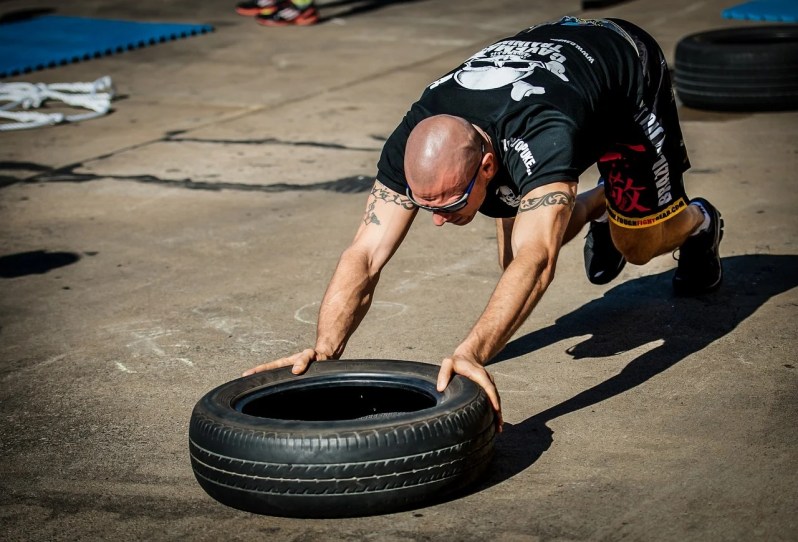Testosterone is an important hormone that’s often called the male ‘sex hormone.’ Testosterone plays a role in muscle size and strength, bone growth, libido or sex drive, and more. We’ve heard about low T and some of the problems that can arise for men, including hair loss, memory and sleep issues, low libido, weight gain, and erectile dysfunction. I’ve known both male and female friends who experienced symptoms of low testosterone, and they felt better when they started resistance training, consuming a more nutritious diet, and making other healthy lifestyle changes. I get a boost of energy and focus after weightlifting, which could be for several reasons, including the increase in testosterone. Men naturally have higher levels of testosterone than women, but it’s important for both to have optimal levels.
If you have concerns about your testosterone levels, it’s always best to consult with your healthcare provider, who can test your levels and guide you in the right direction. While several factors are involved with reproductive hormones, if you’re a man with low T, you might wonder if working out increases testosterone. Let’s look at what testosterone is, the symptoms of low T, and the link between exercise and testosterone levels.
What is testosterone?

Testosterone is an anabolic reproductive hormone that can help you build muscle mass and bone density. It also regulates sperm production, fat distribution, facial and body hair, red blood cell production, and more. In men, testosterone is mostly produced in the testes. Levels of this hormone typically decline with age. Some health conditions, metabolic disorders, medications, and injuries can also lower testosterone levels in men and women, such as alcoholism, kidney disease, and liver cirrhosis.
Certain lifestyle habits, including working out, can help you boost your testosterone levels. In some cases, if testosterone levels are below a certain threshold for some time, healthcare providers might recommend testosterone replacement therapy.
What are the symptoms of low T in men?

The symptoms of low testosterone in men include:
- Reduced sex drive
- Low energy
- Fatigue
- Weight gain
- Depression and moodiness
- Low self-esteem
- Thinner bones and low bone density
- Less body hair
What are normal testosterone levels?

For adult males, the normal testosterone levels range between 280 and 1,100 nanograms per deciliter (ng/dL), according to the University of Rochester Medical Center. These ranges vary depending on the lab or health organization.
Does working out increase testosterone?

The good news is that research shows that exercise can raise testosterone levels, especially resistance training and high-intensity interval training or HIIT. Doing HIIT three or four times a week as part of a regular routine has been proven to elevate testosterone levels. This gives us another reason to include exercises like bench presses, squats, and deadlifts in our workout plans.
Cardio and aerobic exercise still affect testosterone, but it isn’t as significant as weight training, and in some instances, it can reduce testosterone. Former professional athlete and fitness expert Funk Roberts shares his concerns with high cortisol and how long bouts of endurance cardio aren’t the best solution if you specifically want to raise those T levels. Cardio is still important for heart health, weight management, and overall athletic performance, so most fitness experts recommend including cardio in your weekly workout schedule. Cardio and working out in general also helps you reduce your body fat, which helps optimize reproductive hormones.
Mounting research

Several factors modulate the effect of exercise on testosterone. Studies on different types of exercise have found different outcomes, and more research is needed on the types and intensities of exercise in men. Greater intensities and greater volumes of work are more likely to boost this androgen hormone.
Research reveals that after lifting weights and after performing HIIT, men experience significant increases in testosterone. Exercising regularly is associated with higher T levels and other health benefits. Researchers also found that having higher T levels helps build more muscle.
For men with really low levels, most endocrinologists and urologists usually recommend more than just working out alone.
The best exercises to boost testosterone

The best exercises to increase those T levels are resistance training, strength training, and HIIT. For example, one study revealed that men who completed strength training three days a week for four weeks had higher T levels following the workout and over time. Another study concluded that just one 30-minute weightlifting session increased T levels by 21.6% in men. In another example, researchers found that T levels increased in both younger and older men following three sets of eight to 10 weightlifting reps. Researchers have also found that interval training boosted free T levels more than running for 45 minutes straight.
When should you exercise for the best results?

Your testosterone varies throughout the day, and levels are usually higher in the morning and lower in the afternoon. You should fit your strength training workout in whenever possible, but your post-workout boost could be bigger after a morning workout.
Factors to consider

In addition to working out, other factors also affect testosterone, including:
- Your fitness level.
- Body weight.
- Medical conditions like obesity, diabetes, heart disease, and metabolic syndrome.
- Your diet.
- How you sleep.
- Your age.
Additional tips to boost testosterone

The following are top tips to boost testosterone:
- Use compound movements like rows, chest presses, and squats to stimulate more testosterone by working multiple muscle groups simultaneously. Experienced fitness buffs and influencers like Tanner Shuck prioritize compound movements to get ripped and increase testosterone.
- When you’re familiar with the exercise, and you’ve perfected your form, try to lift heavier weights.
- Take rest days to give your muscles enough time to repair and recover.
- Consume a nutrient-dense diet with plenty of protein. Protein is key for muscle growth, and the right nutrients give you energy to fuel your workouts. Interestingly, overeating has been associated with lower testosterone levels.
- Try to improve your sleep quality to get plenty of rest. Research reveals that testosterone levels rise after sleeping, but they decrease if you’ve been awake too long and your sleep is suffering.

- Try to lower your stress levels. Cortisol is the stress hormone. Researchers have found that when cortisol levels suddenly rise, testosterone quickly drops, like a seesaw effect.
- Get plenty of sunshine and vitamin D. Studies indicate low vitamin D levels are associated with low testosterone levels.
- Make sure you have sufficient vitamins and nutrients like vitamin B and zinc.
- Try to lower your exposure to certain chemicals that can increase estrogen, such as BPA found in some types of plastic and packaging.
- Consume plenty of healthy fats in natural foods, such as avocados, meat, coconut oil, and nuts. A low-fat diet could actually decrease testosterone levels, according to some research.
- Stay hydrated and drink plenty of water.
- Try some herbal supplements that have been researched to boost testosterone, including ginger, ashwagandha, and saw palmetto. More research is needed for more conclusive results. If you’re considering taking these supplements, it’s best to consult with your healthcare provider first, especially if you have underlying conditions or you’re taking other medications.
- Lower your alcohol intake.
FAQs

What exercise increases testosterone most?
Weight training, resistance training, and HIIT have been shown to increase testosterone the most. Cardio should still be included in an optimal workout schedule for weight management, heart health, and other benefits.
How much does working out increase testosterone?
In one study, a 30-minute weightlifting session heightened T levels by 21.6% in men.
Do gym guys have more testosterone?
Putting in the effort and doing strength and resistance training over time can definitely bring those levels up.
How long do T levels stay elevated after a workout?
In some research, testosterone spiked for 15 minutes to an hour following a workout, but exercising regularly helps you sustain those higher levels over time. Sticking to your exercise plan helps you maintain a healthy weight and regulates your T levels.
Concluding thoughts

The best types of exercise to boost testosterone are resistance training and HIIT. Exercising is a key part of a healthy lifestyle that can help you improve your T levels. The best results come from staying consistent and opting for a mix of cardio and strength training to help you maintain a healthy weight. Sleep quality, diet, vitamin D levels, and other factors also affect the Big T.




